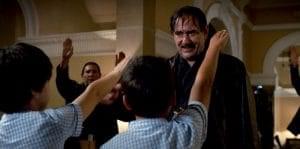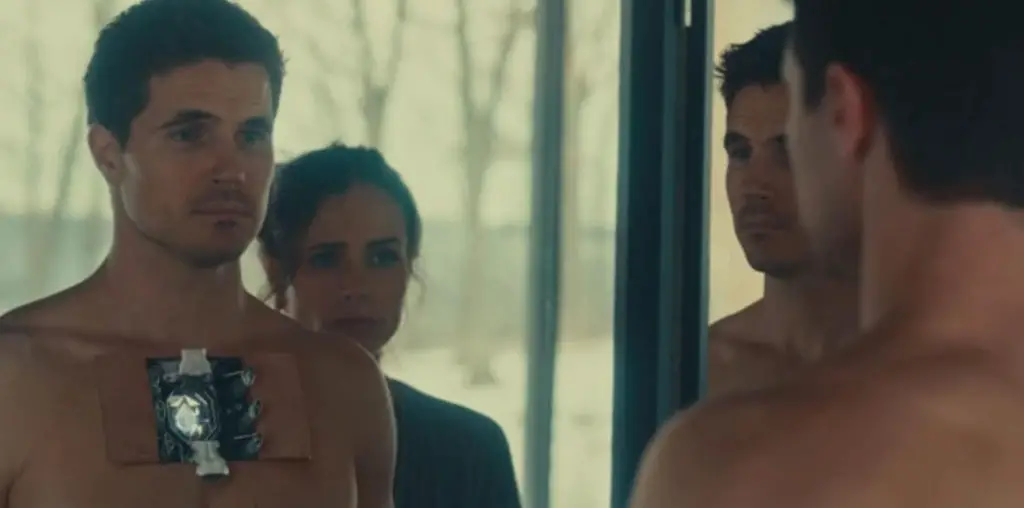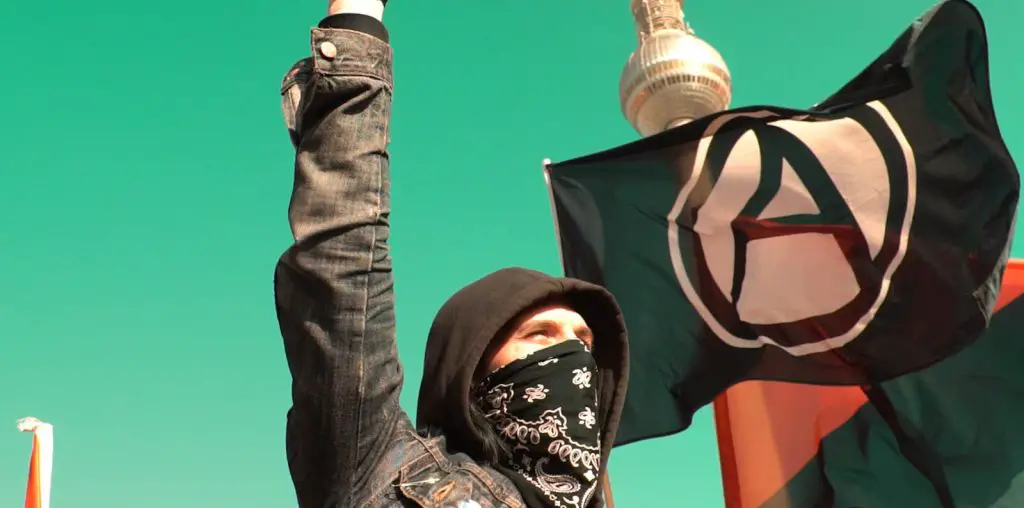
Ana Murugarren’s The Bastards’ Fig Tree tells the story of Rogelio (Karra Elejalde), a soldier who’s fighting on the side of the fascist Nationalists during the Spanish Civil War. One night, he and several colleagues raid a house and execute a man whom they believe to be a Republican, namely an anti-Nationalist. Before the execution, however, the man’s 10-year-old son subjects Rogelio to an angry, uncomfortably long stare.
A look from a little boy might not seem like that big of a deal. But it leaves Rogelio deeply unsettled, and he becomes convinced that the boy will grow up to be a vengeful killer. Subsequently, out of a mixture of guilt and fear, Rogelio drops out of the army. Taking up residence on the plot of land where the boy’s father ended up being buried, Rogelio instead dedicates the rest of his life to nurturing a fig tree that the boy planted on the gravesite.

“…it leaves Rogelio deeply unsettled, and he becomes convinced that the boy will grow up to be a vengeful killer.”
A cross between a fairy tale and historical fiction, The Bastards’ Fig Tree was adapted from a novel by the Basque writer Ramiro Pinilla. Unfortunately, it’s not hard to detect traces of these novelistic origins in the film itself. Given the film’s dutifully linear structure, for one, it often feels like scenes were slapped together, as though Murugarren merely went through the motions of adapting one chapter after the next. Additionally, you’ll find that all of the characters neatly fit into some kind of role – one guy is the “foil,” another the “antagonist,” and so on – as though Murugarren wanted to make the story an easy exercise in literary analysis.
All that said, however, The Bastards’ Fig Tree still proves worthwhile for a couple of reasons. To start, one of the film’s central conflicts is that Rogelio’s colleagues don’t like the fig tree, seeing as it reminds them of their role in the murder of innocent civilians. In this sense, the film’s aesthetic proves quite apt. With its smooth camera movements and elegantly designed lighting, it speaks to this desire to forget, illustrating how everyone but Rogelio wants to cover up uncomfortable memories and pretend that all is well.

“…it offers a noteworthy reminder of the dangers of historical amnesia. And in so doing, it indirectly raises thought-provoking questions…”
In a larger sense, this stylistic approach also speaks to The Bastards’ Fig Tree’s value as a depiction of history. Even today, after all, the Spanish Civil War continues to be a delicate topic in Spain. As illustrated by recent controversies over the exhumation of Francisco Franco’s corpse, Spain remains torn by disputes over the best way to honor the victims of fascism. (For context, a rough equivalent in the United States would be the current debate over reparations for slavery.)
To be sure, The Bastards’ Fig Tree isn’t primarily an interrogation of history, and it never explicitly addresses all of these thorny issues. But by virtue of its setting and narrative material, the film still ends up making a political statement. Inelegant as it may be in many places; in other words, it offers a noteworthy reminder of the dangers of historical amnesia. And in so doing, it indirectly raises thought-provoking questions about the intimate, often fraught relationship between the past and present.

The Bastards’ Fig Tree (2019) Directed by Ana Murugarren. Written by Ana Murugarren. Starring Karra Elejalde, Pepa Aniorte, Carlos Areces, Mikel Losada.
6 out of 10


